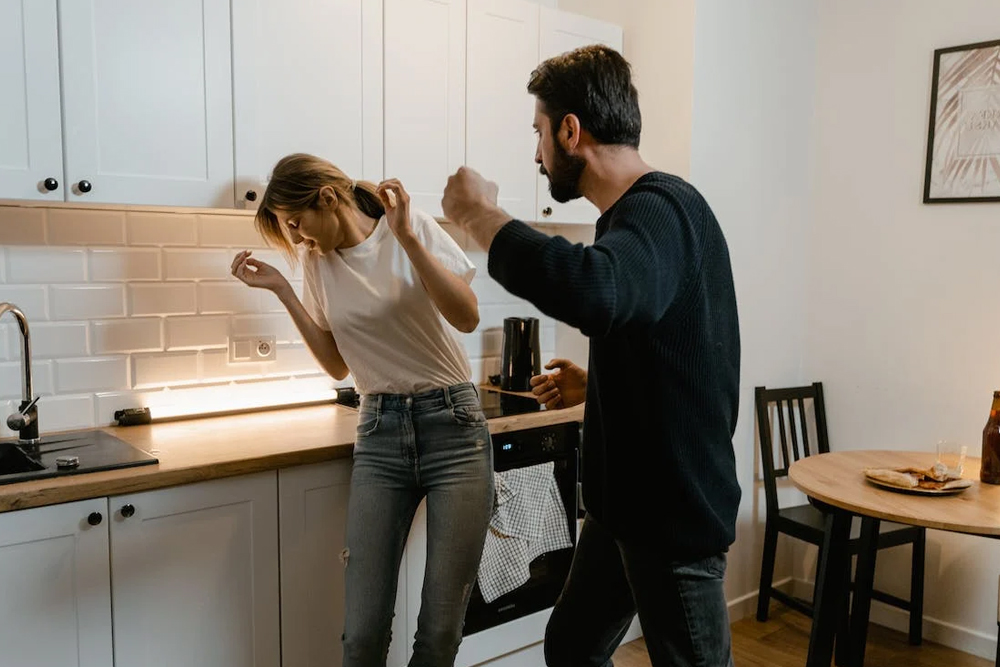Recollect that great listening takes practice, to continue to deal with it, and you will see positive outcomes.
It is essential to have the ability to listen to other people in order to improve relationships, comprehend other people, and avoid misunderstandings.
Take these steps to improve your listening skills.
1. Concentrate on the speaker:
Give the person talking to you your full attention at all times. Maintain eye contact and put your phone or any other electronic device away from you. This will demonstrate your complete presence and participation in the conversation.
2. Try not to interrupt:
It can be tempting to interrupt the speaker to inquire about their thoughts or ask questions. However, interrupting a speaker can hinder their ability to fully express themselves and cause disruption. Before you ask questions or add your own thoughts, you should wait for the speaker to finish speaking.
3. Show compassion:
Make an effort to comprehend the speaker’s point of view and emotions. You can accomplish this by actively listening to what they say and observing their body language and voice tone. You might find that this helps you respond in a way that is understanding and helpful.

4. Make inquiries:
You can gain a deeper comprehension of the speaker’s point of view and clarify any ambiguities or misunderstandings by asking questions. Try to ask open-ended questions that encourage the speaker to share their thoughts and feelings or provide more information.
5. Think back:
Confirm your comprehension and demonstrate your listening by summarizing what the speaker has said. “Let me make sure I understand” or “It sounds like you’re saying” are two examples of phrases you can use. You can use this to ensure that you are both on the same page and avoid misunderstandings.
6. Drop your telephone.
Drop your phone when you’re talking to your girlfriend or boyfriend, especially if it’s about something important. This shows that you regard the individual talking and that you are paying attention to what the person must say. During a face-to-face conversation, it is impolite to keep checking the phone or fiddling with it. Put your phone in silent mode so you can better listen, as e-mails and notifications can wait.
Switch off the TV, don’t pick up your phone calls, and try to find a moment alone together to talk.
7. Look at each other.
Imagine having a conversation with someone who never looks at you or at anything else except you. Make and keep eye contact in order to be a good listener. It shows your sweetheart or beau that you are a lot of zeroed in on the topic. You don’t have to look them in the eye to do this; depending on the situation, you can just give them a casual look. In addition, making eye contact demonstrates to the speaker that you are truly prepared to listen.
8. Keep waiting.
Patience is a virtue and one of the most important components of improving one’s ability to listen. You need to have a great deal of patience in you to be able to listen. When your partner complains about something that happened during the day, you will definitely need that. When you listen, being patient allows the person to fully express what they want to say. It is strongly suggested that you take deep breaths and set speaking time intervals if you find that you are impatient.
9. Give a thoughtful response.
You must also be responsive in order to improve your listening skills. When only one person is speaking and the other person is merely nodding or shaking their head, communication is not effective. Because you are listening well, you will be able to respond to any question in a coherent manner if you are a good listener. It’s not always enough to answer the question with a “yes” or “no.” Always remember to participate in the conversation.
10. Recognize what they’re saying:
It’s not enough to know your partner and you speak the same language. You must carefully consider what they are saying. You must comprehend how it impacts you. If they’re talking about a problem, you need to know how to assist them.
Don’t just listen to what they’re saying; think about what they’re trying to say as well. Reading these cues, even if the words are not spoken aloud, is the key to good listening. Therefore, try to understand what they are really saying and speak their language.

11. Summarize Your Knowledge:
At the conclusion of the conversation, summarizing what your partner said demonstrates that you were listening to understand them. This is a great way to demonstrate to your partner that you are considering both the content and the context. Your partner can explain what they actually meant if you missed anything. When your partner senses that you are listening, your relationship can grow stronger.
Try to actively listen to your partner the next time you talk to them. Counseling can be helpful if you and your partner have trouble communicating well together. The quality of your relationship will rise if your partner has the impression that they are heard and understood.
12. Maintain Focus:
You must give your partner your full attention if you want to be a good listener. To do this you should limit interruptions. Put your phone down, turn off the television, and look at your partner. On the off chance that you are diverted, not visually connecting, or accomplishing something different, your accomplice will think you’re not tuning in. When you don’t pay attention to your partner, you send the message that what they have to say doesn’t really matter to you. Instead, simply focus on what your partner is saying to create a secure setting where they can feel heard, understood, and connected.
-
Free marriage bureau in India
-

7 ways to spot a fake person or profile on matrimonial websites
-

Why Do Parents Trust in Matrimonial Sites?
-

The Importance of Compatibility in a Successful Marriage











